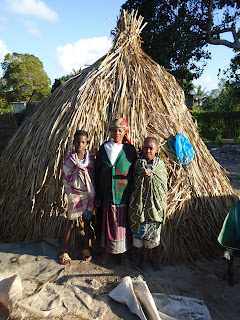Wednesday, 31 August 2011
A Level
Find out here what you will be studying at A level
GCSE Geography
At GCSE we follow the AQA A syllabus. This means students will study Physical Geography in Year 10 and Human Geography in Year 11.
In Year 10 students will study 3 of the following topics:
1) The Restless Earth
2) Challenge of Weather and Climate
3) Water on the Land
4) The Coastal Zone
5) Ice on the Land
In Year 11 students will study 3 of the following topics:
1) Population Change
2) Globalisation
3) Tourism
4) The Development Gap
5) Changing Urban Environments
Both Physical and Human units will end in an exam worth 37.5% of the Geography GCSE.
Students will also be required to complete a controlled assessment worth 25% of the Geography GCSE, content of which will vary each year.
In Year 10 students will study 3 of the following topics:
1) The Restless Earth
2) Challenge of Weather and Climate
3) Water on the Land
4) The Coastal Zone
5) Ice on the Land
In Year 11 students will study 3 of the following topics:
1) Population Change
2) Globalisation
3) Tourism
4) The Development Gap
5) Changing Urban Environments
Both Physical and Human units will end in an exam worth 37.5% of the Geography GCSE.
Students will also be required to complete a controlled assessment worth 25% of the Geography GCSE, content of which will vary each year.
Year 9 Programme of Study
In Year 9 you will develop your understanding of how places and people interact by examining our responsibilities as individuals, communities and countries. You will investigate some of the biggest global challenges facing the world today so that you can help solve them tomorrow. You will do this by studying the folowing topics:
1) Water Water Everywhere
2) Whether the Weather
3) Globalisation and me
4) Arrested Development: Impact of Conflict
5) Is the world fair? Takling Global Poverty
6) Going to Extremes: Super Eruptions, Mega Tsunamis and Twisters
Year 8 Programme of Study
In Year 8 you will focus on what connects us to other places and people and how places and people interact. You will look at how people make decisions about their lives, how they use resources and what we think other people are like and the impact these decisions have on the world around us. you will do this by studying the topics below:
1) What makes places dangerous?
2) How many people is too many people?
3) How does your city grow?
4) Is it me or is it hot in here?
5) Why doesn't the UK have a rainforest?
6) Health, Wealth & Happiness: Global differences in life and death.
Year 7 Programme of Study
In Year 7 you will look at your local area in depth and consider other places around the world. You will focus on developing key geographical skills. You will become a fieldwork expert by developing map reading and research skills. You begin to think about how people interact and affect the environment around them. You will do this by studying the following topics:
1) Where did geography come from?
2) Do Geographers ever get lost?
3) Is Hounslow London?
4) Why do people live along rivers?
5) What does Geography have to do with crime?
6) What processes take place along the coastline?
Mozambique Trip 2011
Throughout the last academic year a group of sixth form students worked extremely hard to raise over £22,000 to travel to Mozambique and build homes for orphans and vulnerable children with Habitat for Humanity. They raised the money by charity bag packing, organising events at school. taking part in a sponsored cycle and much more.
In July 2011 they travelled to Mozambique and helped build two much needed homes. The children and their grandparents had been living in cramped, leaking inadequate homes like the ones below.
The money raised by Lampton School has meant that they now have a save and secure place to live. Thank you to everyone who helped, your contribution has helped transform the lives of the children the students met in Mozambique.
Tuesday, 30 August 2011
Hurricane Irene
On August 20th 2011 Hurricane Irene formed over the Atlantic Ocean. It reached category 3 with winds of up to 120mph, it caused 48 deaths and over US$10 billion worth of damage.
You can find out more about Hurricane Irene at the following website:
http://www.bbc.co.uk/search/news/?q=hurricane%20irene
You can find out more about Hurricane Irene at the following website:
http://www.bbc.co.uk/search/news/?q=hurricane%20irene
Why Geography?
Geography is everywhere!
In an increasingly global and dynamic world the importance of geography is evermore apparent. Through the study of geography we learn about the complexities of people and places, how landscapes are formed, how people and the environment interact, the links between diverse places and cultures, and about our impact on our planet. Geography enables people to build upon their own experiences and develop their intellectual skills and capacities.
Watch the clips below to find out where geography can take you!
In an increasingly global and dynamic world the importance of geography is evermore apparent. Through the study of geography we learn about the complexities of people and places, how landscapes are formed, how people and the environment interact, the links between diverse places and cultures, and about our impact on our planet. Geography enables people to build upon their own experiences and develop their intellectual skills and capacities.
Watch the clips below to find out where geography can take you!
Subscribe to:
Comments (Atom)

